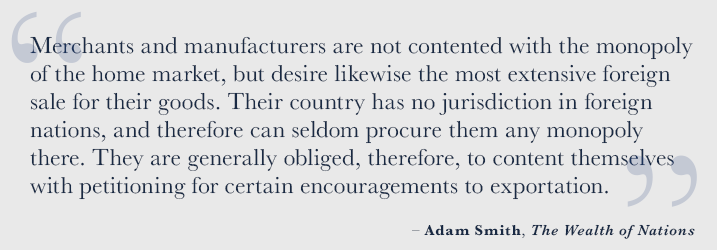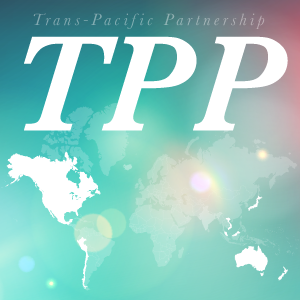The “encouragements” that Adam Smith refers to are none other than Duty Drawback. In the United States, drawback has been a fixed part of trade policy since 1789 when the Founding Fathers understood that a thriving domestic economy required robust international trade.
By allowing exporters of products to draw back duty imposed upon its initial importation, it puts those exporters on an equal footing with their overseas competitors.
Simply put, better-priced products sell, well, better.







